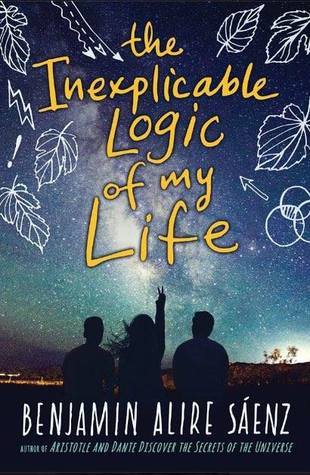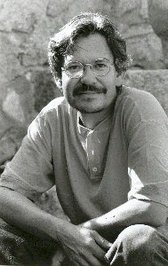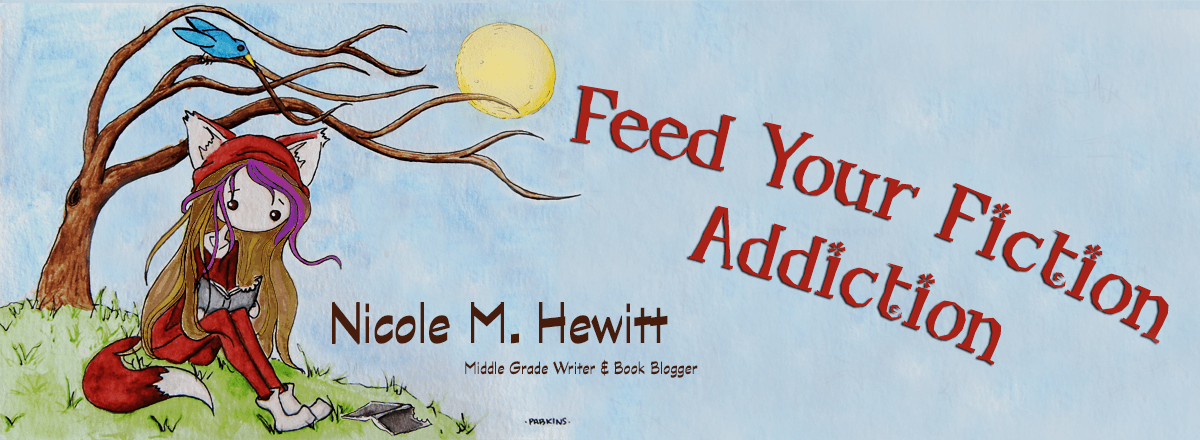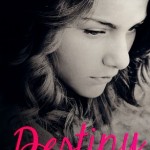 The Inexplicable Logic of My Life by Benjamin Alire Sáenz
The Inexplicable Logic of My Life by Benjamin Alire Sáenz Published by Clarion Books on March 7th 2017
Genres: Young Adult, Contemporary, LGBTQ+
Pages: 464
Source: NetGalley
My content rating: YA (Some swearing, small amount of violence, death and dying)
My rating:

The first day of senior year:
Everything is about to change. Until this moment, Sal has always been certain of his place with his adoptive gay father and their loving Mexican-American family. But now his own history unexpectedly haunts him, and life-altering events force him and his best friend, Samantha, to confront issues of faith, loss, and grief.
Suddenly Sal is throwing punches, questioning everything, and discovering that he no longer knows who he really is—but if Sal’s not who he thought he was, who is he?
I really enjoyed this book, and it was beautifully written, but there were a few things that kept me from absolutely adoring it. I almost wrote a bite-sized review for this one, but then I decided I just couldn’t talk about it concisely enough for that because there were a lot of points that I wanted to talk about. My feelings about this book are complicated!
What Fed My Addiction:
- Gorgeous writing. Sáenz has a way of putting emotion on paper (or, you know, digital screen) that that is utterly captivating and beautiful. If I were rating this book on writing alone, it would easily get five stars. I’m not great about highlighting quotes when I read, but for this book I just had to share a couple, so I headed over to Goodreads to find you a couple of examples of how Sáenz captures emotion so beautifully:
“… one ordinary day you run into a word that exists only in theory. And you meet it face to face. And then that word becomes someone you know. That word becomes someone you hate. And you take that word with you wherever you go. And you can’t pretend it isn’t there.”
“When is the right time for anything? Who knows? Living is an art, not a science.”
- Characters you can’t help but love. Because of the depth of the emotion in this book, it’s hard not to get wrapped up in the lives of these characters. It’s a very character-driven book, so it’s a very good thing that they’re people you can love, even though they’re all (well, mostly) flawed. A lot of trauma befalls Sal and his friends, so be prepared to hurt for them.
- Sal’s father. If there was ever a perfect YA parent, it’s Sal’s dad. He handles every situation with grace and love, but he still steps forward and sets boundaries. I absolutely loved him (though, if you head down to my negatives, you’ll see that I thought maybe he was a teensy bit too perfect?)
- Diversity. This book is all about the diversity. With three gay characters, and a white boy raised in a Mexican family there are plenty of diverse themes to explore. And Sáenz explores them in a thoroughly honest and thought-provoking way.
- Adoption portrayed positively. This book explores the issue of adoption and shows how family can be forged in many different ways.
- Religion portrayed positively. The book also explores religious themes in an incredibly balanced manner. Sal isn’t sure how he feels about religion, and he has people in his life in various areas of the spectrum, from his devout Catholic grandmother (who he adores) to his father who believes in God but doesn’t actively practice his religion much, to his best friend who isn’t at all sure about God. I loved that Sal’s exploration was personal and there didn’t seem to be any judgment on any side.
- No romance. There’s no romance in this book, but there is an incredibly strong male-female friendship. It was refreshing to see this!
What Left Me Hungry for More:
- Lack of plot. This book is incredibly character-driven. So character driven that there almost isn’t a plot at all. It’s basically just a book about some teenagers and how they feel when traumatic family life happens to them. For a 464 page contemporary, surprisingly little actually happens, and it took me a while to get through the book because of that. It definitely felt like it dragged in some places.
- Textbook parenting? Okay, so I said I love Sal’s dad, and I do. But in some ways he almost seems a teensy bit too perfect. Like he’s literally a parenting book come to life. At one point, Sal even protests that his dad has never tried to be his friend, even though they get along incredibly well. It didn’t seem like something realistic that a kid would say about his dad—it seemed like the parroting back of popular parenting advice. Sal’s dad responds to every situation perfectly. He never raises his voice and he always knows the right thing to say. And (this is hard to even mention because of my own privilege), there was a teensy feeling that I got that maybe the gay dad was being portrayed as too absolutely perfect to contrast with the horrendously terrible, horrible straight parents (and, wow, were they horrible) in order to make a point? There’s validity to this, since we need to see positive portrayals of gay parents, but I have to confess that there was a little part of me that felt like the depiction of absolute perfection was maybe a little too over-the-top and therefore didn’t ring true, which watered down the message a little.
- Sal’s sudden fits of violence. So, in the book Sal suddenly finds himself getting angry often and punching people (or really wanting to punch them even when he doesn’t follow through—but he does follow through several times throughout the book). He always does it in defense of someone he loves, so the sentiment is admirable, but I couldn’t help but feel like this was kind of odd. I get that Sal is confused about his life and sad about his grandmother’s illness, but it seemed odd to me. The thought goes through his head that maybe it was a case of nature vs. nurture (like maybe he gets his violent tendency from his biological father), but then when there is a chance to explore that at the end of the book, it isn’t really mentioned. And Sal’s grandmother tells Sal that it’s just him growing up, as if it’s completely natural for boys to start punching people when they’re becoming men. Um … no?
So, like I said, my feelings are complicated when it comes to this book. It’s beautifully written and there are aspects of it that I adored, but the slow pacing and the lack of plot made it hard for me to truly love. Those things, along with the other more nit-picky issues I had with the book, lowered my rating a bit. In the end, I gave it 3.5/5 stars.
***Disclosure: I received this book from the publisher via NetGalley in exchange for an honest review. No other compensation was given and all opinions are my own.***
About the Author
 Benjamin Alire Sáenz is an award-winning American poet, novelist and writer of children’s books.
Benjamin Alire Sáenz is an award-winning American poet, novelist and writer of children’s books.
He was born at Old Picacho, New Mexico, the fourth of seven children, and was raised on a small farm near Mesilla, New Mexico. He graduated from Las Cruces High School in 1972. That fall, he entered St. Thomas Seminary in Denver, Colorado where he received a B.A. degree in Humanities and Philosophy in 1977. He studied Theology at the University of Louvain in Leuven, Belgium from 1977 to 1981. He was a priest for a few years in El Paso, Texas before leaving the order.
In 1985, he returned to school, and studied English and Creative Writing at the University of Texas at El Paso where he earned an M.A. degree in Creative Writing. He then spent a year at the University of Iowa as a PhD student in American Literature. A year later, he was awarded a Wallace E. Stegner fellowship. While at Stanford University under the guidance of Denise Levertov, he completed his first book of poems, Calendar of Dust, which won an American Book Award in 1992. He entered the Ph.D. program at Stanford and continued his studies for two more years. Before completing his Ph.D., he moved back to the border and began teaching at the University of Texas at El Paso in the bilingual MFA program.
His first novel, Carry Me Like Water was a saga that brought together the Victorian novel and the Latin American tradition of magic realism and received much critical attention.
In The Book of What Remains, his fifth book of poems, he writes to the core truth of life’s ever-shifting memories. Set along the Mexican border, the contrast between the desert’s austere beauty and the brutality of border politics mirrors humanity’s capacity for both generosity and cruelty.
In 2005, he curated a show of photographs by Julian Cardona.
He continues to teach in the Creative Writing Department at the University of Texas at El Paso.









I’m excited to read this book. I really liked the writing in Aristotle & Dante, and I’m usually not too bothered by slow books. Great review!
From what I can gather, it’s similar in style to Aristotle. I haven’t read that one, but that’s my guess based on comments I’ve seen. So if you loved that one, you’ll probably love this as well!
I absolutely love this review, because it really made me mentally push this book up on my TBR. I also love that this book explores adoption and how family can be forged in many different ways. You don’t see that often enough in books. Thank you for sharing your full thoughts about this book!
Brittany @ Brittany’s Book Rambles
Glad I got you more interested in reading this one!
So glad you did a full review of this one, Nicole. I really enjoyed reading your thoughts and appreciated the points you made about Sal’s dad. I’m interested to pick this one up myself and see what I think. Although I admit I’m a bit wary of a 464 page book that is low on plot.
I felt like it was definitely a little long and there were a few places that dragged, but it was definitely a gorgeous read!
I am so excited for this beautiful book! I have heard some mixed reviews but I did really love Ari and Dante so I am still quite excited to give this a read! Thanks so much for sharing! <3
It seems like it’s very similar to Aristotle, from what I’ve heard, so you’ll probably love this one too.
Hmmm. Sal sounds like a typical teenager in a way that he’s unpredictable and immature at times. I don’t like the impulsive needs for violence, though. But heck, this man can write the most beautiful prose, so I’m totally down.
I wasn’t even so upset about the impulsive violence—it just seemed odd that it was never really addressed. And I wasn’t crazy about the implication that it was all part of growing up.
I love that this book explores so many themes and explores the complexity of such issues honestly. I’m all for a strong parent presence in YA books but I could definitely see myself getting frustrated at just how perfect Sal’s dad is. It’s natural for parents and kids to disagree with one another so I’d much rather see the conflict and their handling of it than have his dad be the perfect parenting model.
Right. I’m all for great YA parents, but perfect YA parents put me off a teensy bit.
I don’t have a copy of this one, but I DO want to read it soon. I’m sorry it wasn’t one you really loved – but I like that it still had a lot of positives. I don’t really mind it being more about the characters, though, so that aspect probably won’t bother me too much.
I did really enjoy it—it’s one of those books that was hard for me to put a star rating on, though, you know?
Hmm… I’m interested in this one because I quite liked Aristotle and Dante… and it sounds like the character driven novel and the beautiful writing style are back! In that one as well I felt as if there wasn’t much of a plot, so I am prepared for that. But maybe too much perfection isn’t necessarily a good thing. 😉
My post: http://olivia-savannah.blogspot.nl/2017/03/forward-seated-fold-patience-yogi.html
It seems like from what everyone’s saying this is very similar in style to Aristotle, so I’m guessing you’ll really enjoy this one too.
I absolutely adored this book but I agree with all your points! I think the plot was more like an internal conflict resolution for Sal. and Sal’s dad was indeed a little too perfect. I actually gave it 8 starts minus three because of all this 😀
Ha! Love your rating system!